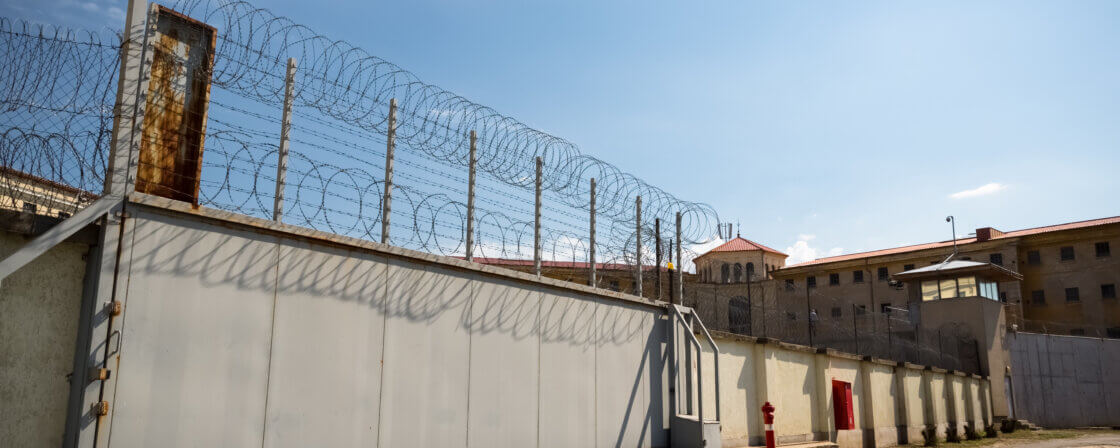The basis is the Act on Liability for Damage Caused in the Exercise of Public Authority. This legislation gives citizens the right to claim compensation from the state if there has been misconduct by public authorities – whether in the form of an unlawful decision or an incorrect official procedure. This latter category includes delays in proceedings. The aim is not only to compensate for financial loss, but also to redress the psychological and personal injustice caused by the State.
The decisions of the European Court of Human Rights are also an important guide for assessing the reasonableness of the length of proceedings. For example, in Kudła v. Poland, the Court emphasized that the state has not only the obligation to ensure a fair trial, but also the right of a party to a hearing within a reasonable time. Czech case law has adopted this principle and the Supreme Court has repeatedly confirmed that inaction by the courts or repeated postponements of hearings may give rise to a claim for compensation for delays in proceedings.
Previous judgments have contributed to the fact that today citizens have a clear legal basis when the state commits errors in the judiciary – whether it is compensation for detention or compensation for delays in court proceedings.
Are you solving a similar problem?
Were you wrongfully detained or did your court case drag on for years? Don't let it go unanswered!
The state has a duty to correct its mistakes and you have the right to compensation for unlawful detention or delays in proceedings. We will make sure the state pays you fair compensation. We will find out if you have a claim, calculate the realistic amount of compensation, prepare an application to the Department of Justice and, if necessary, litigate on your behalf.
I'm interested
- When you order, you know what you will get and how much it will cost.
- We handle everything online or in person at one of our 6 offices.
- We handle 8 out of 10 requests within 2 working days.
- We have specialists for every field of law.
When does a claim for compensation for detention arise
Detention is one of the most serious interferences with personal liberty – a person is deprived of his or her liberty even though he or she has not been convicted. If he or she is eventually acquitted or the proceedings are dismissed, he or she is entitled to compensation for detention.
This entitlement applies to any situation where a person has been held in detention that has proved to be unlawful or unjustified. The claim may include both pecuniary damage, such as loss of income during detention or legal costs, and non-pecuniary damage, such as psychological damage, loss of reputation or disruption to personal and family life. The Ministry of Justice usually assesses how long a person has been in detention, what the consequences have been, and determines the amount of compensation accordingly.
The procedure for claiming compensation is fairly straightforward – you must first submit a claim for compensation to the Ministry of Justice, which acquits or dismisses the case within two years of the legal force of the decision acquitting you or dismissing the case (in other cases, such as delays in proceedings, the time limit for claiming non-pecuniary damage is six months from the time the victim became aware of the damage).
If the Ministry rejects the claim, it is possible to take legal action in court. In most cases, it makes sense to contact a lawyer who can both document the extent of the damage and argue the amount claimed. Contact us and we can help you.
However, compensation for custody is not just about money, it is about the principle of justice and the recognition that the state is responsible for a mistake that has interfered with an individual’s life.
To make the principles of compensation clearer, here are some typical examples from practice:
Example 1: Mr K. was charged with a property crime and spent four months in detention. He was eventually fully acquitted by the court. The Ministry of Justice awarded him CZK 120,000 in compensation for his detention, including compensation for loss of income.
Example 2: Mrs L sought a division of the community property after the divorce. The court proceedings had lasted eight years and more than two years had elapsed between hearings without any reason. The Ministry of Justice acknowledged that there had been maladministration in the form of delays in the proceedings and awarded CZK 150,000 for non-pecuniary damage.
Example 3: Mr J. had been litigating with the authority for years over a building permit. Due to the length of the proceedings and the importance of the case for his business, he was awarded compensation of CZK 200 000 for the delay in the proceedings.
These examples show that the state is indeed responsible for unfair interference and that it is worth defending your rights, even if it sometimes means a more lengthy procedure.
Compensation for delays in court proceedings
A second very common area where citizens seek compensation from the State is delays in court proceedings. Under Article 38(2) of the Charter of Fundamental Rights and Freedoms, everyone has the right to have their case heard without undue delay. When proceedings drag on for years and the courts fail to take the necessary steps, this constitutes maladministration, which may give rise to a claim for compensation for non-pecuniary damage.
Anyone who has been involved in proceedings that have taken an unreasonable amount of time can claim compensation for delays in court proceedings. Reasonableness is assessed on an individual basis – it depends on the complexity of the case, the conduct of the parties, the conduct of the courts and the importance of the case to the victim. For example, a maintenance or child custody dispute has a much greater impact on the lives of the parties than, say, a property dispute.
The amount of compensation is usually determined according to the length and intensity of the delays – according to case law, the amount is usually around CZK 15,000 to 20,000 for each year of unreasonable proceedings, but can be higher if the consequences for the victim were significant. Compensation is awarded for non-pecuniary damage in the form of mental exhaustion, stress or uncertainty associated with the long wait for justice.
In order to succeed, it is necessary to prove that the court or other authority was actually inactive – for example, that months passed between acts without objective reason. It may be appropriate to cite specific time gaps or to request the file to prove delays. The application should first be submitted to the Ministry of Justice within six months of the victim becoming aware of the injury. If the state does not recognize the claim, one may seek to enforce one’s rights through the courts.
Tip for article
Tip: The Constitutional Court is supposed to be the last instance of protection of fundamental rights. The rulings are final, no one will review them. This makes the question all the more urgent: what if the Constitutional Court gets it wrong?
How to proceed with a claim
The procedure for both types of claims – compensation for damages for unlawful detention and compensation for non-pecuniary damage caused by delays in the proceedings – follows similar rules. The basis is the preliminary submission of the claim to the Ministry of Justice. It must be submitted in writing and contain all the necessary information:
- identification of the injured party,
- a description of the facts (what happened, when, how long the proceedings or detention lasted),
- identification of the decision or procedure that was unlawful or unreasonable,
- the specific amount claimed and the reasons for it,
- annexes, if any (copies of judgments, income certificates, medical reports, etc.).
The Ministry has 6 months to process the request. If the Ministry does not accept or rejects the claim, you can take the matter to court. The length of the limitation period depends on the type of claim – for unlawful detention, you have two years from the time the decision to dismiss or acquit came into force, and for delays in proceedings, you have six months from the time you became aware of the injury, but no later than three years from the time it occurred.
An experienced solicitor will not only help you to draft the application, but also to determine the realistic amount claimed and to estimate the chances of success. At The Affordable Advocate, we handle cases like this on a regular basis – drafting the application, handling communications with the Department and any potential lawsuit.
This is because delays in proceedings and unlawful detention are not just formal errors in the system; they have real impacts on the life, health, family and reputation of victims. The law is therefore clear that the state must correct and compensate for these errors. If you feel that you have been harmed by delays or unlawful detention, do not hesitate to consult a lawyer about the situation.
Summary
Anyone who has been wrongfully detained or whose court proceedings have taken an unreasonable amount of time has the right to seek compensation from the state for damages or compensation for non-pecuniary harm under the Public Liability Act. Unlawful detention gives rise to a claim for compensation for pecuniary damage (e.g. loss of income or defence costs) as well as compensation for non-pecuniary damage such as psychological suffering, stress or damage to reputation. Delays in proceedings are considered maladministration if the courts do not take the necessary steps without justification or if there are long delays between hearings. The amount of compensation is usually around CZK 15 000-20 000 per year of undue proceedings, but can be higher depending on the impact on the victim. The application for compensation must be submitted in writing to the Ministry of Justice and must include a description of the case, the evidence and the amount claimed. The Ministry has six months to process the claim; if it does not accept the claim, an action can be brought in court. The statute of limitations varies according to the type of claim – for unlawful detention it is two years, for delays in proceedings six months from the time the victim became aware of the injury (but no later than three years after it occurred). The aim of compensation is not only financial compensation, but also recognition of the State’s responsibility for the interference with fundamental rights and fair redress for the harm suffered.
Tip for article
Tip: You can be imprisoned if you are charged with a criminal offence. However, this can only be done for certain reasons, for example if there is a fear that you will abscond or continue to commit crime. What types of custody are there?
Frequently Asked Questions
When am I entitled to compensation for unlawful detention?
A claim arises if you were in custody but were eventually found not guilty, the proceedings were dismissed or the prosecution was unjustified. In this case, the state is liable for the harm caused by the unjustified restriction of your personal liberty.
How is it assessed whether there has been a delay in court proceedings?
The reasonableness of the length of the proceedings is assessed individually according to the complexity of the case, the conduct of the parties, the procedure of the court and the importance of the case for the victim. If months or years elapse between each court action without objective reason, this constitutes delays giving rise to a claim for compensation.
What is the usual amount of compensation?
For delays in the proceedings, an award of CZK 15,000-20,000 is usually made for each year of unreasonable length of proceedings, but the amount may be higher if the consequences have been significant. In the case of unlawful detention, the amount is determined on a case-by-case basis according to the duration and the consequences for the victim’s life.
Where and when do I apply for compensation?
The request shall be submitted in writing to the Ministry of Justice within six months of the legal validity of the decision or the moment when the victim became aware of the damage. If the Ministry does not recognise the claim, recourse may be made to the courts.
What do I need to attach to my application?
You must give a description of the case, the duration of the proceedings or detention, the relevant decisions and the amount requested with reasons. The application must be accompanied by annexes – e.g. judgments, income certificates, medical reports or other evidence of the damage caused.




